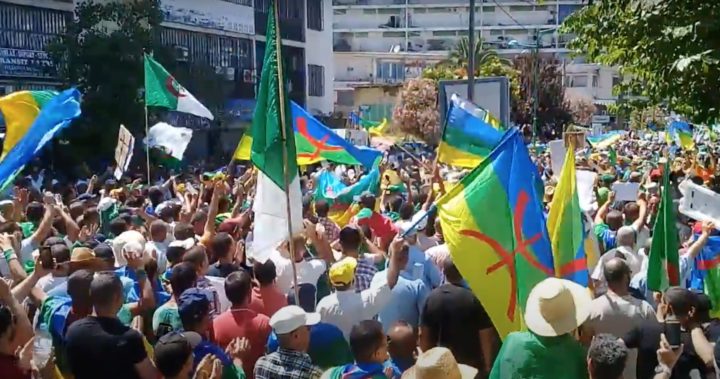Independent Algeria was born in 1962. However, Kabylia, as a region is the base of a population with its own characteristics and social organization, is the product of a long history. This indigenous population, the first inhabitants to arrive in the places called “The Amazighs of North Africa”. Where the word Amazigh means “free man”. You can better understand its meaning when you are in one of those Kabyle villages perched on top of a mountain.
Throughout its 59 years of existence, the Algerian regime has punished Kabyle citizens for exercising their basic civil and human rights. Arrests are increasing these days in Kabylia, Tizi-Ouzou and Béjaïa, which remain at the forefront of the struggle for identity and democracy in Algeria.
A dangerous drift where the most basic democratic rights are violated by the justice which criminalizes political activity and opinions by laying very serious charges, which have nothing to do with criminal acts.
The arrests of politicians and peaceful activists bearing the image of Noureddine Ait Hammouda, Bouaziz Ait Chebib, Boumediene Hammou, Professor Fatiha Briki and dozens of detainees and defendants, who have committed no crime of murder, and corruption. Around 70 people are reportedly still detained for exercising their legitimate human rights. Some of them are serving long sentences while others are in pre-trial detention. “New allegations of physical and sexual violence in detention have also surfaced in recent days.
The injustices committed by the regime are numerous. Here are a few examples:
The persecution of religious minorities by the Algerian regime is only getting worse. “Algeria has one of the worst records in the world when it comes to suppressing religious freedom and it continues to show blatant disregard for the protection of everyone’s religious freedoms, where secular and Christian minorities, are harassed and thrown in prison because of their religious beliefs.”
The discrimination and ill-treatment inflicted with the arrests against the Berber minorities, Mzabi, Chawis, Targuis and Kabyles for having carried the Berber flag which represents the identity of the Amazigh people during the marches against the dictatorial regime.
Journalists and human rights activists who criticize the regime’s repeated violations are also at risk of being behind bars. In April 2021, Rabah Karèche journalist of the French-speaking newspaper Liberté was placed under arrest warrant, after having published the report of a protest movement of the Tuaregs, a local Berber minority at a demonstration of citizens against the new territorial division, which already used by separating the region of Bourmerdes and Setif from Kabylia.
The brutality of the regime against the Kabyle people is nothing new. From 1962, the year of Algeria’s independence, to 2021, the Algerian regime marginalized the Kabylia region, in particular by arrests, torture whenever the Kabyle people speak openly to defend their fundamental rights, to preserve its culture and ancestral identity.






